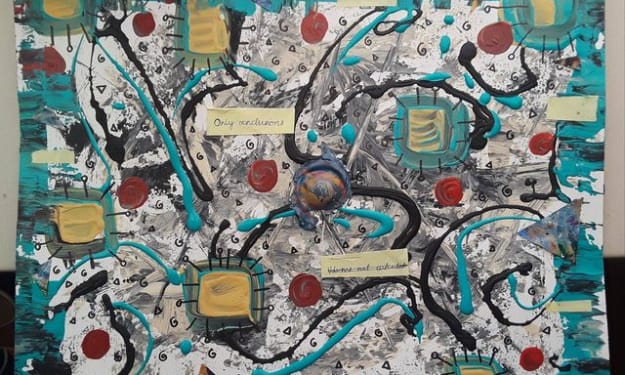
Despite the growing awareness of nonbinary people in mainstream culture, there are still many ways that binary-gendered people, especially cisgender people, can do better to support us. The majority of the changes that need to take place are of course structural, but that does not mean that individuals should not do their part when they can. I myself am nonbinary, and I would like to go over 9 of the ways you can be more supportive of your nonbinary friends beyond learning their pronouns, learning new names, and affirming their genders below with a dos-&-don'ts list.
Dos:
1. Do learn more words. Not just the pronouns your friend uses, but other ones. Show you respect different pronouns in principle and that you are prepared to respect other nonbinary people. Also learn more words for nonbinary genders as well as more gender neutral words in order to be informed. You can also show additional support by learning terms and concepts related to transgender clothing, prosthetics, and medical treatment, as well as legal information related to name and gender marker changing.
2. Relatedly, do unlearn words. If you learn that transgender and nonbinary people take offense to a term or find it to be outdated, take it out of your vocabulary. Don't excuse your idols or loved ones for saying these things either. If you know something is considered problematic, continuing to say or do it comes across as willful ignorance or apathy, both of which are disrespectful.
3. Do respect the name, gender, and pronouns of people you don't like. We want to see that you really believe us when we tell you who we are, and that you aren't just humoring us because you like us.
4. Do apologize if you make a mistake. I've seen some people saying to say thank you for correcting incorrect pronouns rather than to apologize, but as someone who rarely gets apologized to when I'm misgendered, I'd like to see both things happening. If you know someone's name or pronouns but you mess up, that can matter a lot to someone who is regularly invalidated or insecure, and it can be jarring to people who were otherwise confident. It's not hard to apologize, so just apologize. Thanking is more appropriate if you did not know the correct name or pronoun in the first place.
Don'ts:
5. Don't assume allyship makes you an expert or honorary trans or nonbinary person. Trans people are the experts on transgender experiences and issues, and nonbinary people are the experts on nonbinary experiences or issues. Being an ally does not make you an expert, no matter how much you've learned. You can be an informative resource for less knowledgeable cis friends, but you should still always defer to the actual expertise of nonbinary people for nonbinary matters and trans people in general for trans matters. Additionally, hanging around trans and nonbinary people does not make you nonbinary or trans. You're always allowed and encouraged to explore your gender, but don't use us for clout.
6. Don't make a big deal of gender. Do you like gender reveal parties? It's time to let them go. Most nonbinary people believe everyone should be entitled to determining their own gender and interests, so the whole phenomenon of deciding the imposed gender and therefore future activities of a fetus makes our blood boil is generally frowned upon. Other activities of this type to avoid include making teams or groups based on gender, using gender stereotypes to delegate tasks, and using gender as arbitrary criteria in studies, competitions, and gatherings.
7. Don't default to gendered words when there isn't a great neutral option. Nonbinary people do not want to hear your opposition to new or uncommon gender neutral terms, and we don't want to be called gendered terms like "brother" or "actress" unless we are asked and tell you it's okay. Just ask first, and work with us when we have no good options. Trust me, we are more annoyed than you are.
8. Don't assume we should look thin, white, and androgynous. Just like binary people can lean towards being more masculine, feminine, or androgynous, so can nonbinary people, and it should not invalidate who we say we are. And nonbinary people, just like everyone else, come in all shapes, sizes, and races.
9. Don't assume we were all assigned female at birth. This harms both people assigned male at birth (AMAB) and people assigned female at birth (AFAB), as well as yet again overlooks intersex people. Nonbinary AMAB people are harmed by being presumed not to exist or to be men when they are not. AFAB people are also affected however, since this bias means that a lot of people see nonbinary people as a subset of women, which is incredibly invalidating.
Thank you for reading and supporting nonbinary people.
Share with your friends or send a tip below!
About the Creator
S. Alex
In my 20's, nonbinary, and some kind of lost.






Comments
There are no comments for this story
Be the first to respond and start the conversation.